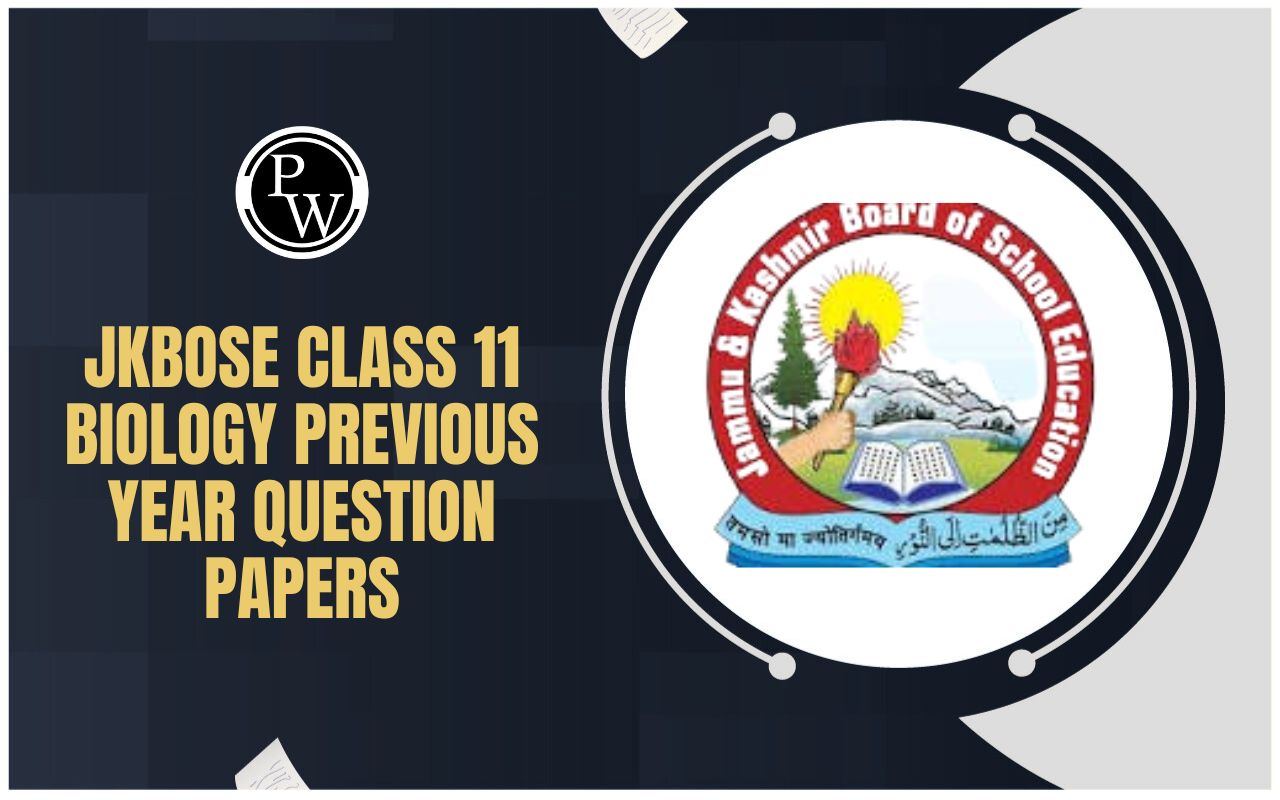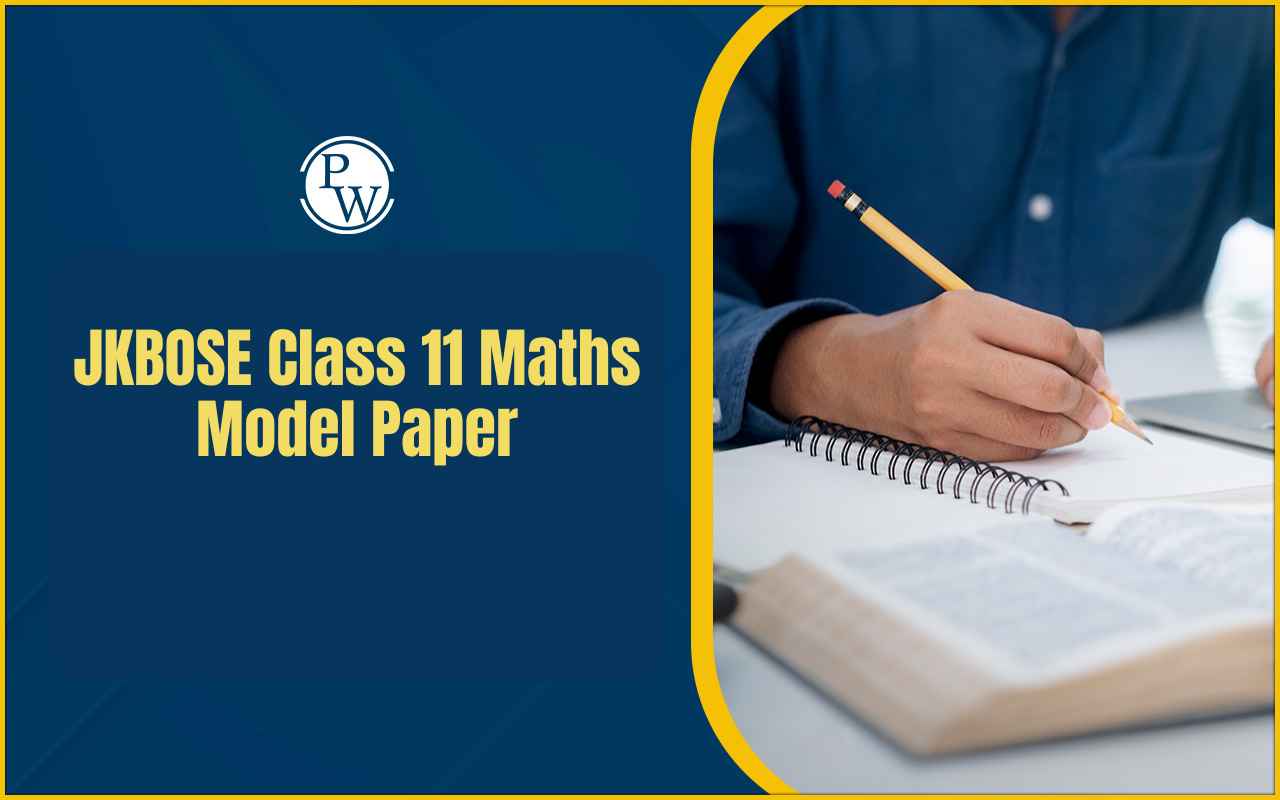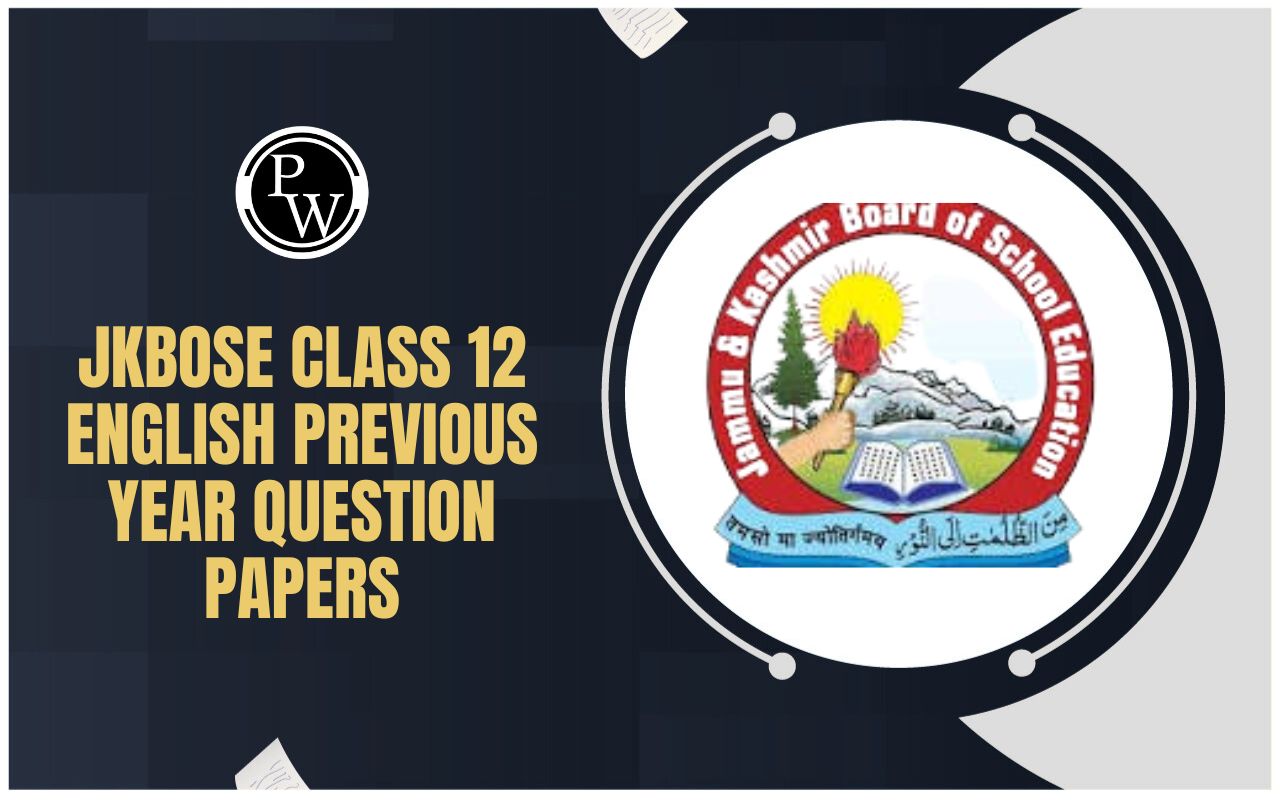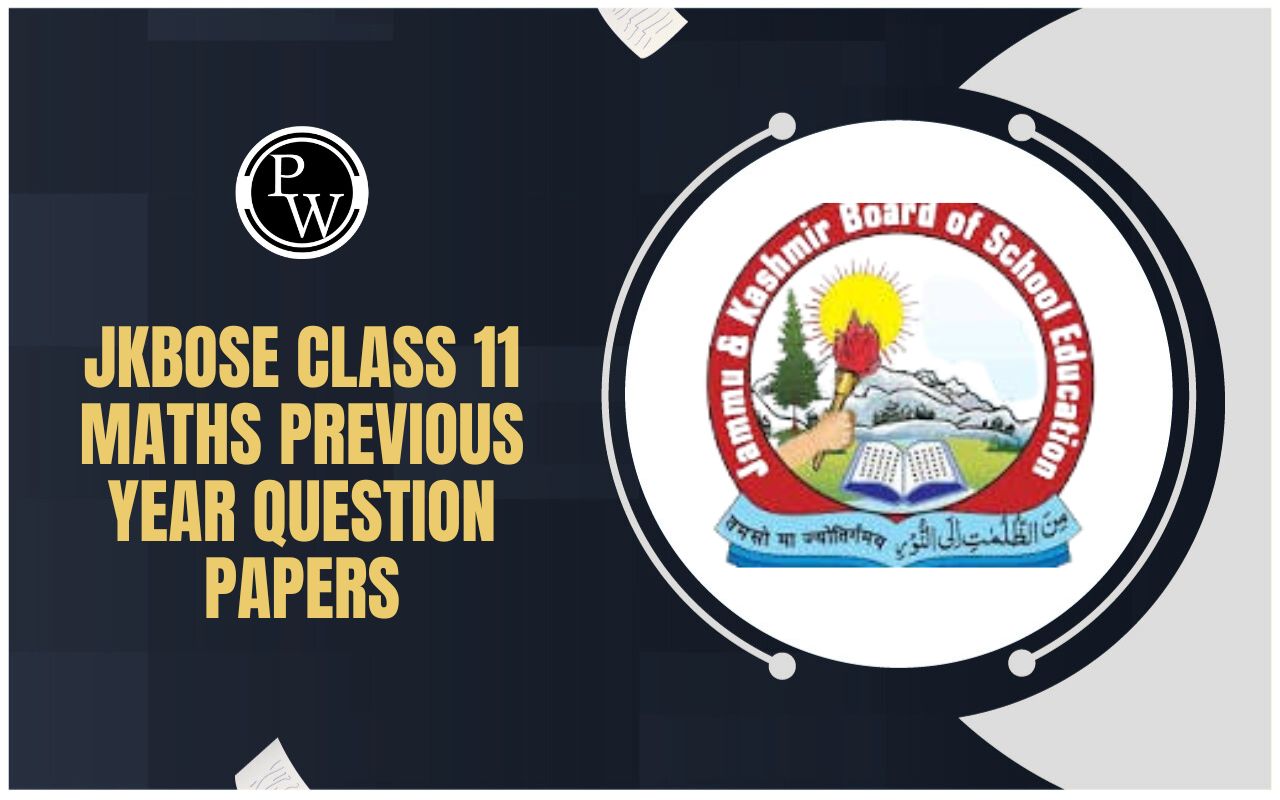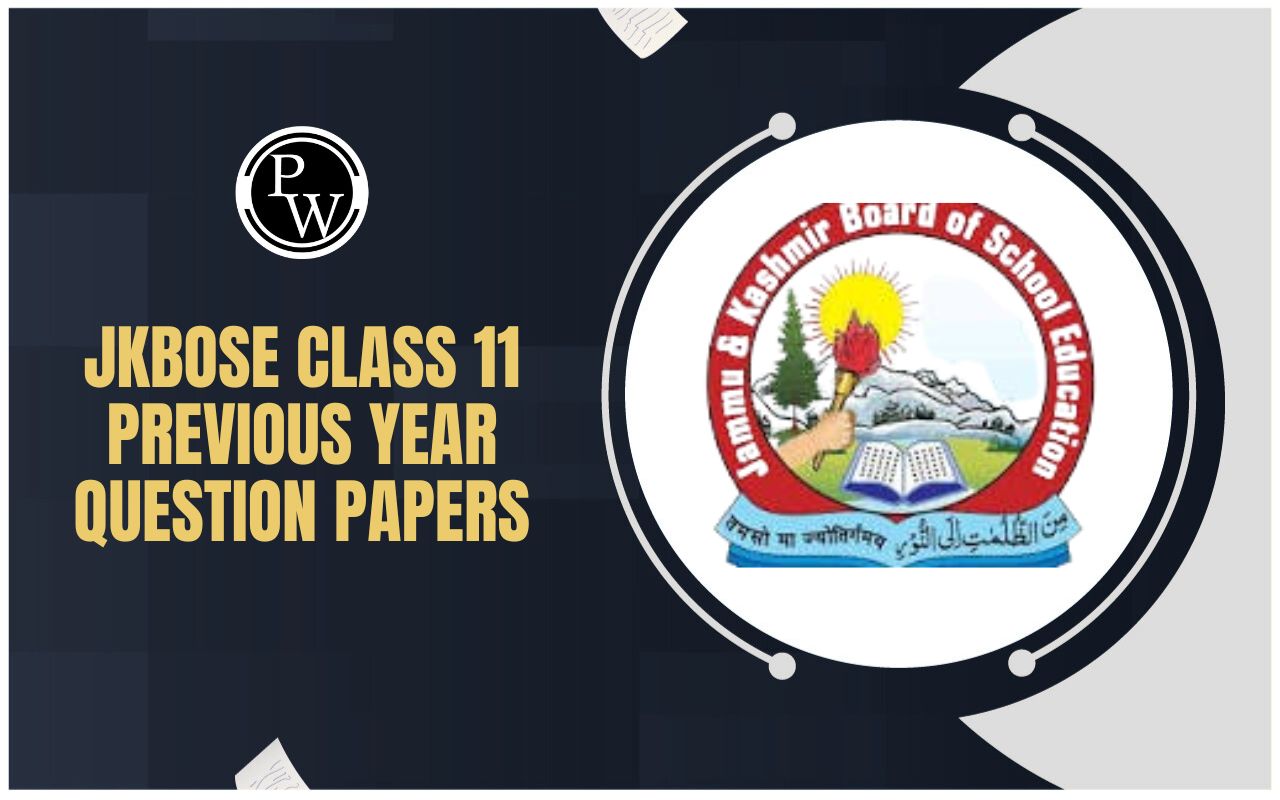
JKBOSE 12th Class Political Science Syllabus 2025-26: The Jammu and Kashmir Board of School Education (JKBOSE) releases the Class 12th Political Science syllabus for the academic session. The updated syllabus provides students with a deep understanding of contemporary world politics and Indian politics since independence.
The syllabus highlights new global dynamics, regional conflicts, political transitions, and India’s position in the changing geopolitical landscape. Students preparing for their board exams must go through the entire syllabus in detail, including chapter-wise marking scheme, assessment pattern, and internal project guidelines.
JKBOSE Class 12th Supplementary Exam Timetable for 2025
JKBOSE 12th Class Political Science Syllabus 2025-26 Overview
JKBOSE 12th Syllabus for Political Science 2025–26 introduces students to major developments in global politics and Indian political history since independence. The curriculum is divided into two main sections: "Contemporary World Politics" and "Politics in India Since Independence." Here is the overview for the students:
|
JKBOSE 12th Political Science Syllabus 2025–26 Overview |
|
|
Particulars |
Details |
|
Board |
Jammu and Kashmir Board of School Education (JKBOSE) |
|
Class |
12th |
|
Subject |
Political Science |
|
Academic Year |
2025–26 |
|
Total Marks |
100 |
|
Time Duration |
3 Hours |
|
Prescribed Books |
1. Contemporary World Politics (NCERT) 2. Politics in India Since Independence (NCERT) |
JKBOSE 12th Class Political Science Syllabus 2025-26 Exam Pattern
JKBOSE 12th Class exam pattern if also included in the syllabus. The exam pattern assesses both theoretical understanding and application-based learning. The question paper is structured into five sections:
-
Section A: 10 Multiple Choice Questions of 1 mark each.
-
Section B: 9 Very Short Answer Questions of 2 marks each.
-
Section C: 7 Short Answer Questions of 4 marks each.
-
Section D: 1 Passage with 3 questions of 2 marks each.
-
Section E: 3 Long Answer Questions of 6 marks each.
The question paper includes Higher Order Thinking Skills (HOTS) to promote analytical reasoning and understanding of concepts rather than simple memorization.
JKBOSE 12th Class Political Science Syllabus 2025-26 PDF Download
JKBOSE 12th Class Political Science Syllabus 2025-26 gives a brief about all the important details related to the marking scheme, exam pattern, and the books prescribed by the board. Students must begin their preparation by referring to the syllabus and have a hard copy of it to track their exam preparation. You can download the syllabus from here:
JKBOSE 12th Class Political Science Syllabus 2025-26
Study without using the internet
JKBOSE 12th Class Political Science Syllabus 2025-26 Marking Scheme
JKBOSE 12th Class Political Science syllabus 2025-26 also includes the marking scheme. It provides students with an understanding of contemporary global politics as well as India’s political evolution since independence. Divided into two parts—Contemporary World Politics and Politics in India Since Independence, it allows students to explore key historical events, international developments, and political changes in a detailed manner.
The marking scheme promotes a balanced assessment across all major topics. Each chapter is assigned a specific mark based on its conceptual depth and relevance in the curriculum. Chapters such as the disintegration of the “Second World”, South Asia in the post–Cold War era, India's external relations, and recent developments in Indian politics are allotted more marks due to their broader scope and importance. This structured allocation of marks allows students to prioritise their preparation according to the marks distribution.
Understanding the chapter-wise marking scheme will not only help students manage their study time effectively but also improve their answer-writing strategy during exams. Here is the JKBOSE 12th Class Political Science syllabus 2025-26 marking scheme:
|
JKBOSE 12th Class Political Science syllabus 2025-26 Marking Scheme |
||
|
Part A: Contemporary World Politics |
||
|
Chapter Name |
Sub-topics (As Per Official Syllabus) |
Marks |
|
1. Disintegration of the “Second World” and the Collapse of Bipolarity |
New entities in world politics: Russia, Balkan states and Central Asian states. Introduction of democratic politics and capitalism in post-communist regimes. India’s relation with Russia and other post-communist countries. |
06 |
|
2. Alternative Centres of Economic and Political Power |
Rise of China as an economic power in post-Mao era, creation and expansion of European Union, ASEAN. India’s changing relations with China. |
06 |
|
3. South Asia in the Post–Cold War Era |
Democratisation and its reversals in Pakistan and Nepal. Ethnic conflict in Sri Lanka, impact of economic globalisation on the region. Conflicts and efforts for peace in South Asia. India’s relations with its neighbours. |
06 |
|
4. International Organizations in a Unipolar World |
Restructuring and the future of the UN. India’s position in the restructured UN. Rise of new international actors; New international economic organizations, NGOs. How democratic and accountable are the new institutions of global governance? |
06 |
|
5. Security in Contemporary World |
Traditional concerns of security and politics of disarmament. Non-traditional or human security: global poverty, health and education. Issues of human rights and migration. |
06 |
|
6. Globalization and Its Critics |
Economic, cultural and political manifestations. Debates on the nature of consequences of globalization. Anti-globalisation movements. India as an arena of globalization and struggle against it. |
04 |
|
7. Environmental and Natural Resources in Global Politics |
Environment movement and evolution of global environmental norms. Conflicts over traditional and common property resources. Rights of indigenous people. India’s stand in global environmental debates. |
06 |
|
Part B: Politics in India Since Independence |
||
|
8. Nation–Building and Its Problems |
Nehru’s approach to nation-building: Legacy of partition; challenge of ‘refugee’ resettlement, the Kashmir problem. Organization and reorganization of states; Political conflicts over language. |
06 |
|
9. Era of One–Party Dominance |
First three general elections, nature of Congress dominance at the national level, uneven dominance at the state level, coalitional nature of Congress. Major opposition parties. |
04 |
|
10. Politics of Planned Development |
Five-year plans, expansion of state sector and the rise of new economic interests. Famine and suspension of five-year plans. Green revolution and its political fallouts. |
02 |
|
11. India’s External Relations |
Nehru’s foreign policy. Sino–Indian war of 1962, Indo–Pak war of 1965 and 1971. India’s nuclear programme and shifting alliances in world politics. |
06 |
|
12. Challenge to and Restoration of Congress System |
Political succession after Nehru. Non–Congressism and electoral upset of 1967, Congress split and reconstitution. Congress’ victory in 1971 elections, politics of “garibi hatao”. |
05 |
|
13. Crisis of the Constitutional Order |
Search for ‘committed’ bureaucracy and judiciary. Navnirman movement in Gujarat and the Bihar movement. Emergency context: constitutional and extra–constitutional dimensions, resistance to emergency. 1977 elections and the formation of Janata Party. Rise of civil liberties organizations. |
04 |
|
14. Regional Aspirations and Conflicts |
Rise of regional parties. Punjab crisis. The Kashmir situation. Challenges and responses in the North East. |
06 |
|
15. Recent Developments in Indian Politics |
Participatory upsurge in 1990s, rise of the JD and the BJP. Increasing role of regional parties and coalition politics. UF and NDA governments. Elections 2004 and UPA governments. |
07 |
|
Total |
80 |
|
JKBOSE 12th Class Political Science Syllabus 2025-26 Practical Assessment
JKBOSE 12th Class Political Science syllabus 2025-26 Practical assessment carries 20 marks in the exam. The 20-marks are further divided into an Internal Project File for 10 Marks and Viva-voce for 10 marks.
The syllabus also includes a list of suggested Project Topics. Here is the list mentioned in the syllabus:
-
Division of Germany with special focus on the construction and dismantling of the Berlin Wall.
-
CIS-Central Asian Republics
-
Disintegration of USSR with special focus on Gorbachev.
-
Arab Spring
-
Cover the negative as well as positive aspects of relationship between India and the following countries.
Focus on any one of the following (current updates should be highlighted):
a) Relationship between India and Russia
b) Relationship between India and China
c) Relationship between India and Pakistan
d) Relationship between India and Bangladesh -
ASEAN
-
European Union and BREXIT
-
BRICS
-
SAARC
-
UN Agencies UNICEF, UNESCO, WHO
-
Pandemics: Covid 19- Its global impact (focus on worldwide cooperation and preparedness along with controversies (please collect newspaper clippings for the same)
-
Partition of India-Theory behind it and its legacy
-
Comparison between NITI AAYOG and Planning Commission and their contribution
-
Election 2019- Rise of BJP and Downfall of Congress (1989-2019).
-
Emergency A blot on Indian Democracy
-
NDA III and NDA IV Social and Economic welfare programmes
JKBOSE Class 12 History Syllabus
JKBOSE 12th Class Political Science Syllabus 2025-26 Recommended Books
Students must refer to the official NCERT books prescribed by JKBOSE for Class 12 Political Science:
-
Contemporary World Politics (NCERT)
This book covers international relations, global organizations, and security issues after World War II. -
Politics in India Since Independence (NCERT)
This book focuses on India’s political evolution, democratic institutions, and challenges post-independence.
Both books are essential for board exam preparation and align with the JKBOSE marking scheme and project work.
JKBOSE Class 12 Computer Syllabus
JKBOSE 12th Class Political Science Syllabus 2025-26 Benefits
To prepare for the board exams, you must follow some preparation tips for structured learning. Here are some benefits of understanding the JKBOSE 12th Class Political Science Syllabus 2025-26:
-
The syllabus covers India’s political journey post-independence in great depth. From nation-building and the era of one-party dominance to regional aspirations and coalition politics. This helps students get a good understanding of the Indian democratic process, constitutional developments, and the evolution of governance models.
-
Part A of the syllabus focuses on contemporary world politics including topics like the Cold War, international organisations, globalisation, and environmental politics. This gives students a foundational understanding of global power structures, India's foreign policy, and key international institutions like the UN and ASEAN.
-
The inclusion of topics like globalisation and its critics, security challenges, and crisis of constitutional order allows students to research political events from multiple perspectives. This will help students learn to assess causes, consequences, and policy responses, developing analytical thinking which is crucial for higher education in political science, law, and public administration.
-
Political Science forms a key component in many entrance and civil services examinations such as UPSC, JKPSC, and CUET. The JKBOSE syllabus aligns with the foundational requirements of these exams by including subjects like India’s external relations, post-independence challenges, and international politics.
-
Studying political science encourages active citizenship by educating students about their rights, the importance of elections, the role of civil society, and the working of institutions.
JKBOSE 12th Class Political Science Syllabus 2025-26 FAQs
How many chapters are there in class 12 political science?
There are a total of 15 chapters combined from both the parts included in the syllabus. JKBOSE 12th Class Political Science Syllabus 2025-26 includes two parts: Part A: Contemporary World Politics and Part B: Politics in India Since Independence.
Is political science class 12 easy?
The subject is moderately difficult but by referring to the JKBOSE 12th Class Political syllabus 2025-26, students can gain a better understanding of the concepts and score well in the board exams.
What are the optional subjects in JK Bose?
Subjects like Computer Education/ Science, Hindi, Bhoti, Urdu, Punjabi are some optional subjects in JKBOSE. You must refer to the official syllabus to know about the optional subjects.
What is the passing marks for JK Bose exam?
The passing marks for JKBOSE exams is 36%. Students must score the minimum marks in both written and practical assessment to pass the class.
How many books are there in class 12 political science NCERT?
JKBOSE has also mentioned the names of the books for preparing for Political Science for Class 12th. The names of the books are: Contemporary World Politics (NCERT) and Politics in India Since Independence (NCERT).




